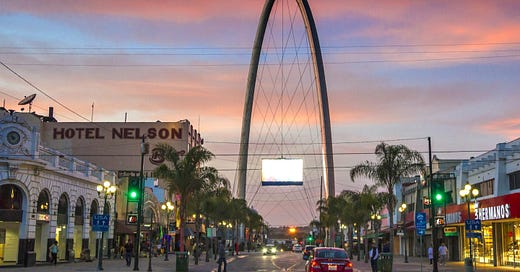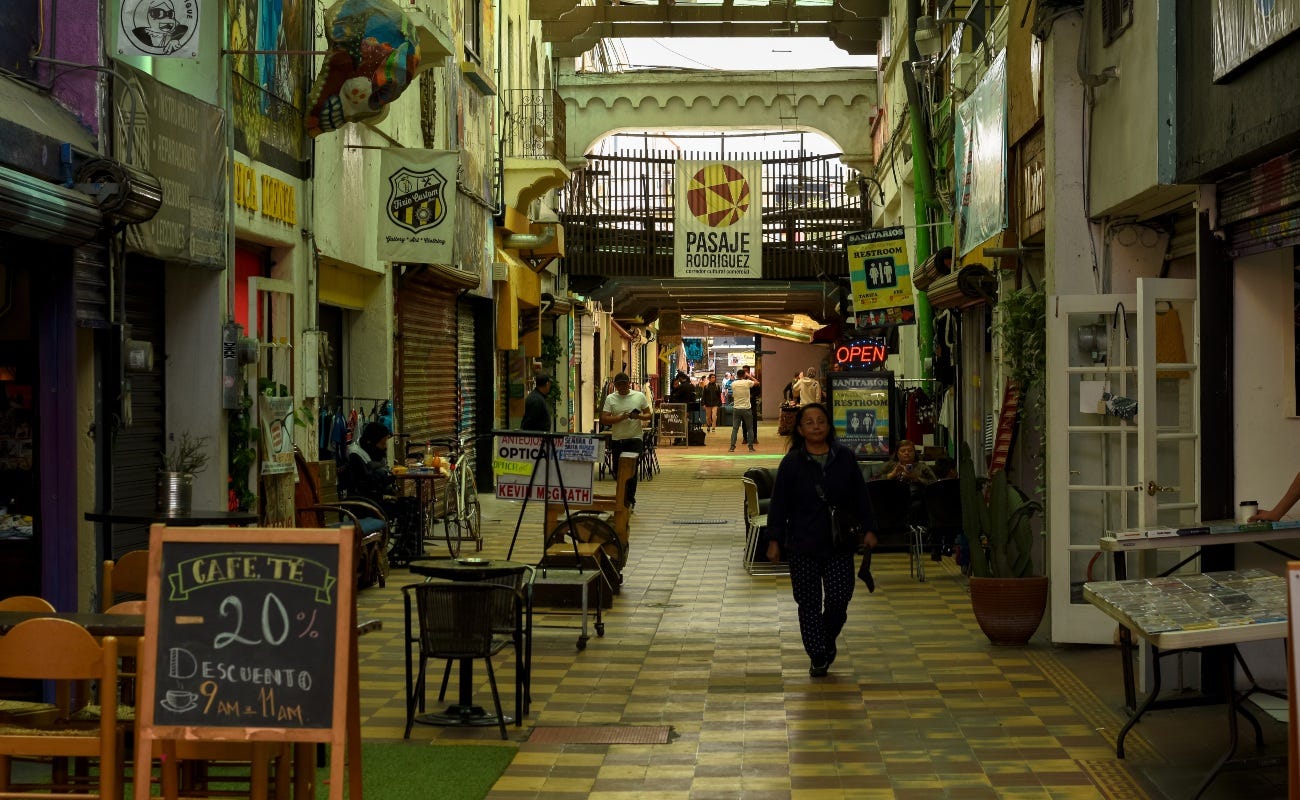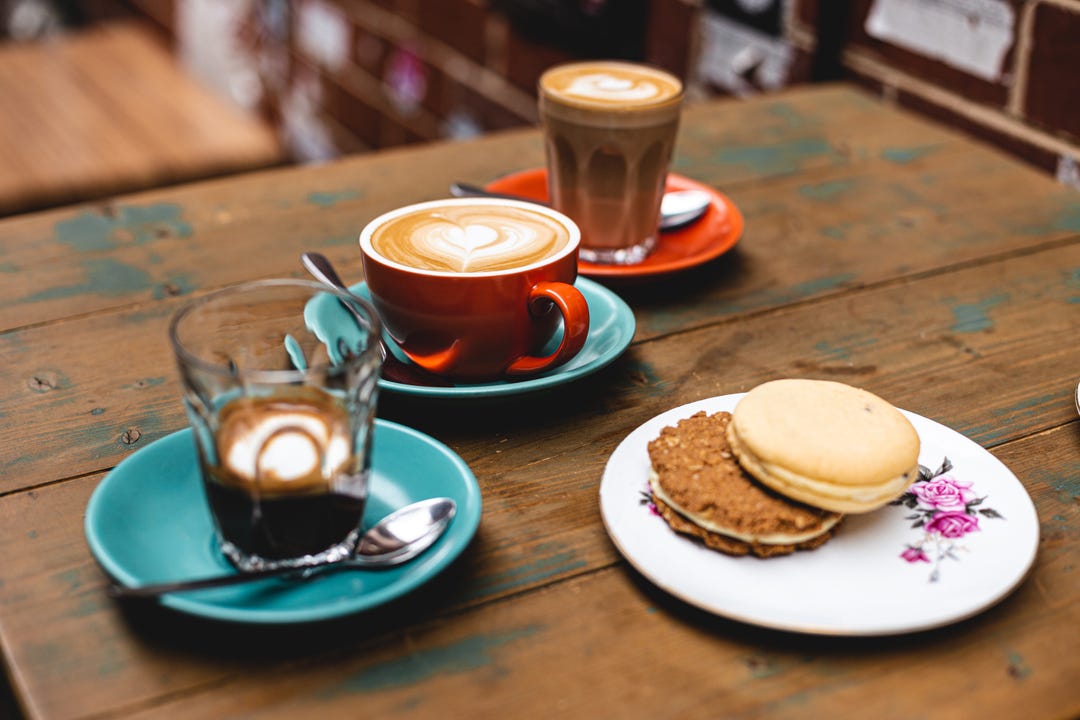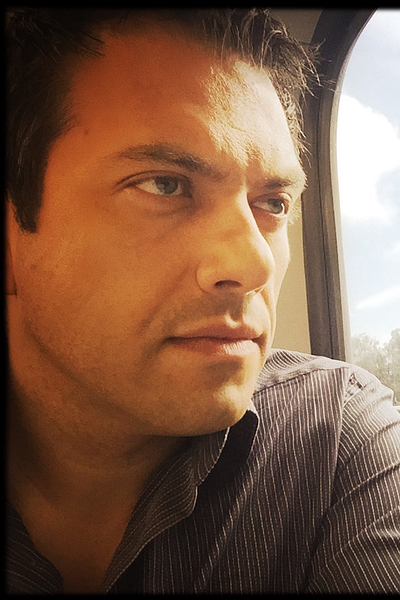A Stranger, A Journey, A Coffee, A Tale of Survival
That random morning, in an alley coffee shop, I walked away with more than just a taste of Tijuana's coffee culture. I walked away with one man’s story etched into my memory.
Tijuana. A city known for many things, but I had never pegged it as a beacon of coffee enlightenment. I ambled down one street and then another and then another with no destination in sight but with one singular purpose of coffee sitting on my morning foggy brain. I turned down a graffiti-laced alley and an intoxicating aroma of roasting beans cut through the usual olfactory cocktail of street food and car exhaust. I followed my nose, a keen sense of chocolate and hazelnut leading me further into the unknown and found myself standing in front of a worn, nondescript door with the only indication of its purpose being a humble, hand-painted sign that read "Café" etched deep into the weathered wood. I stepped into a dimly lit room where an ancient espresso machine sat like a grizzled veteran, scars of time and use adorning its rustic metallic body. This was a machine that worked for a living pumping out espresso drink after espresso drink year after year for countless, happily waiting patrons. The barista, a young woman with a tattoo of a coffee plant winding up her arm and a dragon winding down from her other shoulder welcomed me with a knowing smile and a tilt of her head. I'd found an oasis, an unexpected sanctuary in this chaotic city where the sacred ritual of coffee brewing was celebrated with reverence and the craft held to magnificent standards.
I stood waiting for my cappuccino, marveling at this old rustic coffee shop, its unfinished wooden shelves, uneven and unpainted, stacked with an eclectic array of coffee wares including pour over pots, filters and glassware. I inhaled deeply, the aroma of beans roasting in the backroom was intoxicating and the warm, comforting scent of fresh-brewed coffee tickled my senses. The small shop was a mosaic of stories, each patron carrying an unseen load, a tale of life that was as rich as the espresso that was being served. Among the patrons waiting their turn in line, one man standing behind me drew my attention, his face reflecting a kind of resilience that spoke volumes. His eyes were the “tell” carrying a weariness and a heaviness that was both unsettling and compelling, a testament to a journey that started far away in the violence-ridden landscape of his home. I turned around, smiled and greeted him warmly. He spoke no English, but we managed to pass greetings in Spanish and struck up a conversation to pass the time in line as we waited patiently for our beverages.
He accepted my offer of coffee with a gracious nod, his weathered hands wrapping around the steaming cup like it was a lifeline. We began to talk, and his story unfolded like a tragic novella. He was a Honduran migrant, stuck at this border town, a literal stone's throw and long glance from the promise of a new life. His homeland had become a playground for drug cartels and his family's life a daily gauntlet of fear and violence. The story that he told me was not one of choice, rather it was one of necessity. The threat of violence was a commonplace occurrence and the fear was as pervasive as the humid air. He spoke with a tremor in his voice, a haunting echo of the terror that had seeped into his bones and had propelled him to pack up and leave the familiarity of his homeland. The local barrio had been painted with blood too often and he had finally decided that the price of staying was too steep preferring instead to brave the trek into the unknown.
Escaping Honduras was not a journey for the faint of heart, and he told his tale with a stoic calm that belied the horrors of his experience. They fled under the cover of darkness grouped for safety with others who dared to take that chance elsewhere, a long line of hushed whispers and muffled tears. His wife and children clung to him, their hopes and dreams bundled into tattered backpacks taking only with them what they could easily carry and leaving everything else of value behind. The echoes of gunshots were their cruel send-off, an auditory reminder of the nightmare they were leaving behind. He didn't dwell on the details, but his narrative was punctuated by dark allusions of narrow escapes, nights spent under the open sky, the sacrifice of leaving behind all that was familiar for the promise of safety. He, his wife and two young children pressed northward with others around them in a similar circumstance running from the shadow of the cartels, hoping that each day would bring them closer to freedom, closer to security, sanctuary and refuge.
The long trek northwards was a test of their strength, both physical and spiritual. They traversed treacherous terrains, braved the merciless elements and dodged the ever-looming specter of the cartels that sought to pull them back into the abyss. Each day was a gamble against fate, but his resolve was unwavering. His only mission was to keep his family safe, to shepherd them away from the storm and into the embrace of hope. Every moment was a battle against hunger, fatigue and uncertainty. Facing all of this he still held onto the idea that he was leading his family toward a life free from the stranglehold of violence, that his children would have a shot at a future untarnished by the specter of the cartels and the violence they brought to the community. And it was this flicker, that flame of hope that brought them to Tijuana.
Tijuana was the threshold of his dreams, but it was far from the promised land. The bustling border town was a harsh reality check. The dream of crossing into the United States was within sight, yet frustratingly just out of reach. But even here he found a way to keep his spirits afloat. He clung onto every scrap of hope, every whisper of a chance to cross the border and begin anew. Being stuck in Tijuana was not what he had envisioned when his family's journey first began in Honduras under the blanket of darkness all those months ago. However, it was at least a long step away from the terror that he and his family had fled from and left far behind. They were all stuck at the border. Caught in the purgatory between a past they couldn't return to and a future they could only dream of.
I marveled at his story; a mix of courage and determination. I was taken by his drive for the love for his family and the desperate need to keep them all safe from harm. He dreamt of a place that offered his wife and his children a future free from the fear that had been their constant companion. His eyes lit up as he spoke of crossing the border into America, though he never spoke of the clichéd American Dream of fast cars, white picket fences and 2.5 kids. His was a far more realistic dream. A far more human dream. A far more grounded dream than most Americans would even dare to imagine. It was a dream of a stable job, a safe home and a secure future for his family. Walking his children to school without the constant fear of a bullet in the back. Of covering his children and shielding them with his body in the hopes that the violence would quickly pass. It was a dream of sanity.
As we sat there, our coffee cups now empty, I held his gaze captivated by his honest and heartfelt story. His tale was one of survival and courage and a testament to the human spirit's ability to endure despite insurmountable odds. His story was a reminder of the world beyond our fabricated safety bubble. A world where the morning coffee comes with a side of life-or-death decisions and earth shattering consequences. We parted ways, shaking hands and smiling only in the way only two new friends could. I walked down that quiet alley in Tijuana realizing that his story stayed with me echoing in the corners of my mind, a brutal reminder of the turbulent world that we all live in and shared, but it was also a testament to the indomitable spirit of humanity when faced with such an unimaginable situation. His journey wasn't over, his dreams were unfulfilled, but the glint in his eyes spoke of unbroken resolve to reach, to hope and to pray for the future that he envisioned.
That random morning, in an alley coffee shop, I walked away with more than just a taste of Tijuana's coffee culture. I walked away with one man’s story etched into my memory, a stark reminder of the world's harsh realities. I was gifted a tale of survival, a story of family and of the ceaseless pursuit of a shared dream. In the grand tapestry of life, we are all but fleeting threads, each with our own tale to tell. His story was a poignant reminder that behind the abstract rhetoric of migration and the faceless statistics of displaced people, there are real stories of survival, of dreams deferred and of that relentless hope against all odds. The man from Honduras had a story that needed to be told and I was honored to have been the one he chose to share it with. It was that nuance of fate, that moment of honesty, that second of kindness that led to our lives crossing and the sharing of stories that created a bond that could never be broken. Each cup of coffee in that Tijuana shop, each patron, carried within them a world of stories, and it was a privilege to have been allowed into one of them.








